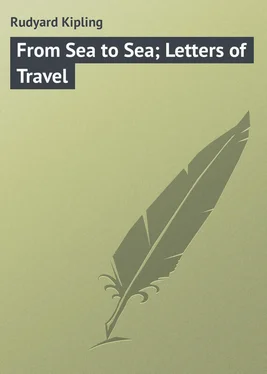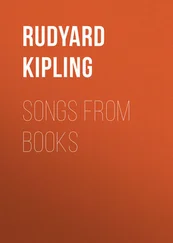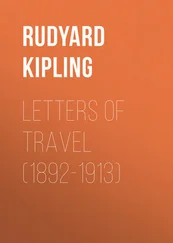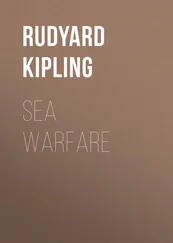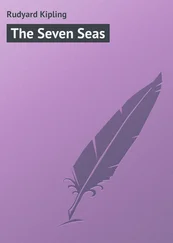Rudyard Kipling - From Sea to Sea; Letters of Travel
Здесь есть возможность читать онлайн «Rudyard Kipling - From Sea to Sea; Letters of Travel» — ознакомительный отрывок электронной книги совершенно бесплатно, а после прочтения отрывка купить полную версию. В некоторых случаях можно слушать аудио, скачать через торрент в формате fb2 и присутствует краткое содержание. Жанр: foreign_prose, foreign_language, на английском языке. Описание произведения, (предисловие) а так же отзывы посетителей доступны на портале библиотеки ЛибКат.
- Название:From Sea to Sea; Letters of Travel
- Автор:
- Жанр:
- Год:неизвестен
- ISBN:нет данных
- Рейтинг книги:5 / 5. Голосов: 1
-
Избранное:Добавить в избранное
- Отзывы:
-
Ваша оценка:
- 100
- 1
- 2
- 3
- 4
- 5
From Sea to Sea; Letters of Travel: краткое содержание, описание и аннотация
Предлагаем к чтению аннотацию, описание, краткое содержание или предисловие (зависит от того, что написал сам автор книги «From Sea to Sea; Letters of Travel»). Если вы не нашли необходимую информацию о книге — напишите в комментариях, мы постараемся отыскать её.
From Sea to Sea; Letters of Travel — читать онлайн ознакомительный отрывок
Ниже представлен текст книги, разбитый по страницам. Система сохранения места последней прочитанной страницы, позволяет с удобством читать онлайн бесплатно книгу «From Sea to Sea; Letters of Travel», без необходимости каждый раз заново искать на чём Вы остановились. Поставьте закладку, и сможете в любой момент перейти на страницу, на которой закончили чтение.
Интервал:
Закладка:
VI
SHOWING HOW HER MAJESTY'S MAILS WENT TO UDAIPUR AND FELL OUT BY THE WAY.
Arrived at Ajmir, the Englishman fell among tents pitched under the shadow of a huge banian tree, and in them was a Punjabi. Now there is no brotherhood like the brotherhood of the Pauper Province; for it is even greater than the genial and unquestioning hospitality which, in spite of the loafer and the Globe-trotter, seems to exist throughout India. Ajmir being British territory, though the inhabitants are allowed to carry arms, is the headquarters of many of the banking firms who lend to the Native States. The complaint of the Setts 6 6 native bankers.
to-day is that their trade is bad, because an unsympathetic Government induces Native States to make railways and become prosperous. "Look at Jodhpur!" said a gentleman whose possessions might be roughly estimated at anything between thirty and forty-five lakhs. "Time was when Jodhpur was always in debt – and not so long ago, either. Now, they've got a railroad and are carrying salt over it, and, as sure as I stand here, they have a surplus ! What can we do?" Poor pauper! However, he makes a little profit on the fluctuations in the coinage of the States round him, for every small king seems to have the privilege of striking his own image and inflicting the Great Exchange Question on his subjects. It is a poor State that has not two seers and five different rupees.
From a criminal point of view, Ajmir is not a pleasant place. The Native States lie all round and about it, and portions of the district are ten miles off, Native State-locked on every side. Thus the criminal, who may be a burglarious Meena lusting for the money bags of the Setts, or a Peshawari down south on a cold weather tour, has his plan of campaign much simplified.
The Englishman made only a short stay in the town, hearing that there was to be a ceremony — tamasha covers a multitude of things – at the capital of His Highness the Maharana of Udaipur – a town some hundred and eighty miles south of Ajmir, not known to many people beyond Viceroys and their Staffs and the officials of the Rajputana Agency. So he took a Neemuch train in the very early morning and, with the Punjabi, went due south to Chitor, the point of departure for Udaipur. In time the Aravalis gave place to a dead, flat, stone-strewn plain, thick with dhak-jungle. Later the date-palm fraternised with the dhak, and low hills stood on either side of the line. To this succeeded a tract rich in pure white stone – the line was ballasted with it. Then came more low hills, each with a cock's comb of splintered rock, overlooking dhak-jungle and villages fenced with thorns – places that at once declared themselves tigerish. Last, the huge bulk of Chitor showed itself on the horizon. The train crossed the Gumber River and halted almost in the shadow of the hills on which the old pride of Udaipur was set.
It is difficult to give an idea of the Chitor fortress; but the long line of brown wall springing out of bush-covered hill suggested at once those pictures, such as the Graphic publishes, of the Inflexible or the Devastation – gigantic men-of-war with a very low free-board ploughing through green sea. The hill on which the fort stands is ship-shaped and some miles long, and, from a distance, every inch appears to be scarped and guarded. But there was no time to see Chitor. The business of the day was to get, if possible, to Udaipur from Chitor Station, which was composed of one platform, one telegraph-room, a bench, and several vicious dogs.
The State of Udaipur is as backward as Jeypore is advanced – if we judge it by the standard of civilisation. It does not approve of the incursions of Englishmen, and, to do it justice, it thoroughly succeeds in conveying its silent sulkiness. Still, where there is one English Resident, one Doctor, one Engineer, one Settlement Officer, and one Missionary, there must be a mail at least once a day. There was a mail. The Englishman, men said, might go by it if he liked, or he might not. Then, with a great sinking of the heart, he began to realise that his caste was of no value in the stony pastures of Mewar, among the swaggering gentlemen, who were so lavishly adorned with arms. There was a mail, the ghost of a tonga, with tattered side-cloths and patched roof, inconceivably filthy within and without, and it was Her Majesty's. There was another tonga, – an aram tonga, a carriage of ease – but the Englishman was not to have it. It was reserved for a Rajput Thakur who was going to Udaipur with his "tail." The Thakur, in claret-coloured velvet with a blue turban, a revolver – Army pattern – a sword, and five or six friends, also with swords, came by and indorsed the statement. Now, the mail tonga had a wheel which was destined to become the Wheel of Fate, and to lead to many curious things. Two diseased yellow ponies were extracted from a dung-hill and yoked to the tonga; and after due deliberation Her Majesty's mail started, the Thakur following.
In twelve hours, or thereabouts, the seventy miles between Chitor and Udaipur would be accomplished. Behind the tonga cantered an armed sowar. He was the guard. The Thakur's tonga came up with a rush, ran deliberately across the bows of the Englishman, chipped a pony, and passed on. One lives and learns. The Thakur seems to object to following the foreigner.
At the halting-stages, once in every six miles, that is to say, the ponies were carefully undressed and all their accoutrements fitted more or less accurately on to the backs of any ponies that might happen to be near; the released animals finding their way back to their stables alone and unguided. There were no grooms, and the harness hung on by special dispensation of Providence. Still the ride over a good road, driven through a pitilessly stony country, had its charms for a while. At sunset the low hills turned to opal and wine-red and the brown dust flew up pure gold; for the tonga was running straight into the sinking sun. Now and again would pass a traveller on a camel, or a gang of Bunjarras 7 7 Gipsy traders.
with their pack-bullocks and their women; and the sun touched the brasses of their swords and guns till the poor wretches seemed rich merchants come back from travelling with Sindbad.
On a rock on the right-hand side, thirty-four great vultures were gathered over the carcass of a steer. And this was an evil omen. They made unseemly noises as the tonga passed, and a raven came out of a bush on the right and answered them. To crown all, one of the hide and skin castes sat on the left-hand side of the road, cutting up some of the flesh that he had stolen from the vultures. Could a man desire three more inauspicious signs for a night's travel? Twilight came, and the hills were alive with strange noises, as the red moon, nearly at her full, rose over Chitor. To the low hills of the mad geological formation, the tumbled strata that seem to obey no law, succeeded level ground, the pasture lands of Mewar, cut by the Beruch and Wyan, streams running over smooth water-worn rock, and, as the heavy embankments and ample waterways showed, very lively in the rainy season.
In this region occurred the last and most inauspicious omen of all. Something had gone wrong with a crupper, a piece of blue and white punkah-cord. The Englishman pointed it out, and the driver, descending, danced on that lonely road an unholy dance, singing the while: "The dumchi ! 8 8 The crupper.
The dumchi ! The dumchi !" in a shrill voice. Then he returned and drove on, while the Englishman wondered into what land of lunatics he was heading. At an average speed of six miles an hour, it is possible to see a great deal of the country; and, under brilliant moonlight, Mewar was desolately beautiful. There was no night traffic on the road, no one except the patient sowar, his shadow an inky blot on white, cantering twenty yards behind. Once the tonga strayed into a company of date trees that fringed the path, and once rattled through a little town, and once the ponies shied at what the driver said was a rock. But It jumped up in the moonlight and went away.
Интервал:
Закладка:
Похожие книги на «From Sea to Sea; Letters of Travel»
Представляем Вашему вниманию похожие книги на «From Sea to Sea; Letters of Travel» списком для выбора. Мы отобрали схожую по названию и смыслу литературу в надежде предоставить читателям больше вариантов отыскать новые, интересные, ещё непрочитанные произведения.
Обсуждение, отзывы о книге «From Sea to Sea; Letters of Travel» и просто собственные мнения читателей. Оставьте ваши комментарии, напишите, что Вы думаете о произведении, его смысле или главных героях. Укажите что конкретно понравилось, а что нет, и почему Вы так считаете.
